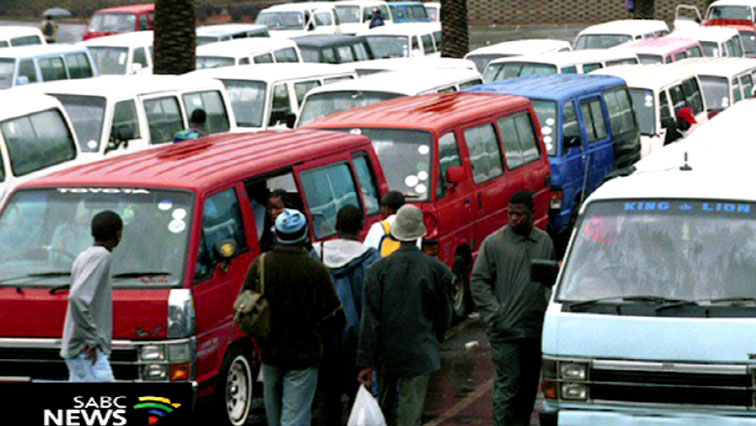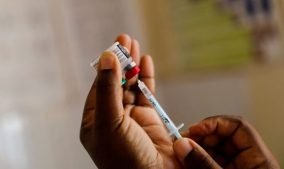Few taxis were seen operating in and around the taxi ranks of Umlazi, South of Durban, on Friday morning as South Africa began its first day of a nationwide lockdown.
This is part of government’s bid to curb the spread of the COVID-19 virus that’s raised concern that a wider outbreak would overwhelm the already strained healthcare system.
According to South Africa’s lockdown guidelines regarding public transport, taxis will only be allowed to operate between 5 AM and 9 AM.
This is to allow public transport users to get to work and go buy essential items such as food and medicine.
By 5 AM on Friday morning in Umlazi, not more than five taxis had collected the few people found at taxi ranks.
Some people say they are still seeing if they can travel home for the 21-days. Otherwise, the situation remains quiet in the area.
In the video below, SABC’s Jayed-Leigh Paulse reports in KwaZulu-Natal ahead of the lockdown:
Concerns over restrictions
Meanwhile, some taxi governing bodies are unhappy with lockdown restrictions outlined by Transport minister Fikile Mbalula.
The SA National Taxi Council (SANTACO) and the National Taxi Alliance (NTA) say they are still uncertain about the transport guidelines.
In the video below, SABC’s Nosipho Mncube reports on the concerns:
Durban residents concerned about water shortages
Community members at the Cato Crest informal settlement in Durban say they are worried about the coronavirus lockdown due to a water shortage in the area.
KwaZulu-Natal Premier Sihle Zikalala engaged with the community to speak to them around prevention measures around the virus and what the lockdown will mean to their daily movement.
Authorities emphasised the importance of using water with soap when washing hands for at least 20 seconds, and as often as possible, to prevent the spread of the coronavirus.
Resident Simphiwe Ngobese says they cannot afford to spare the water they have, for the constant hand washing required to prevent the virus. “Firstly, a lot of people in our area do not understand the use of sanitiser, secondly we don’t have water. We get water at night and in the morning and the rest of the day there’s no water so we have to conserve the water, it has to last us throughout the day for cooking, washing and bathing. So now, that we have to keep on washing our hands, that’s what stresses us even more.”
The Cato Crest residents are also worried about how they would heed the call for social distancing, saying it will be impossible to practice as they live extremely close to each other. Their area is densely populated.
In the video below, Premier warn those who will violate national disaster regulations:
SA’s coronavirus cases rise to 927
The Health Ministry says the number of positive novel coronavirus cases now stands at 927.
This is an increase of 218 from Wednesday. Gauteng still has the highest number with 409 confirmed cases. The Western Cape and KwaZulu-Natal-Natal are following with 229 and 134 cases, respectively.
Gauteng has almost half of the nation’s positive cases of COVID-19. This may be attributed to the province being the biggest gateway into the country.
The Free State has 49 cases, but the number is expected to increase rapidly after two churches that had mass gatherings this month confirmed that some of their congregants had tested positive for the viral infection.








